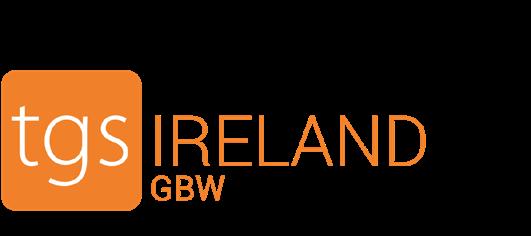
EXPERIENCE Magazine INTERVIEWS TGS New Governance PARTNER EXPERIENCE Business around the world NETWORK EXPERIENCE TGS in the Europe, Middle East and Africa Region issuu.com/tgs-sarrio/experience-magazine THINK GLOBAL SUSTAINABILITY 4 Edition / February 2024
Photo by AdobeStock
EXPERIENCE
is a magazine focused on business trends and business experience stories.

EDITORIAL
TGS NETWORK FIRMS AND THE 2024 PROFESSIONAL SERVICES REVOLUTION
Andrew MENZIES
Design, layout and direction
Lorena Bernales
Marketing & Communications Manager
lorena.bernales@tgs-sarrio.pe
General Editing
Marcela Vargas
CSR & Marketing Project Manager marcelavargas@tgs-global.com
Collaboration and article writing Partners of the TGS member firms
For further information please write to marketing@tgs-sarrio.pe
TGS Sarrio & Asociados
Peru
Follow us on:




www.tgs-global.com
© 2023 TGS
All rights reserved
Vice-President International Development TGS Network
Emerging developments across technology, policy, and client needs are a turning point for professional service firms globally. In this edition of the TGS Experience Magazine, you will read about the steps leaders in the TGS network are taking to remain competitive as the landscape evolves.
Transforming the Finance Professional’s Role
Automation, AI and machine learning are fundamentally altering the accountant’s role. As algorithms take on more data analysis and reporting tasks, finance teams will be able to provide higher-value predictive insights and strategic advice to clients.
Leading firms are getting ahead of this shift by actively upskilling professionals in emerging analytics capabilities to boost the power of their advisory capacity.
Creating Globally Connected Teams
Remote work accelerated by recent world events has enabled real-time collaboration across international time zones. Leading firms implement structures to coordinate distributed staff working with equally distributed clients. Adaptive management and robust communication systems are key competitive differentiators as they allow seamless teamwork regardless of geography.
Embedding Corporate Sustainability
As major reporting systems evolve, proactive firms have an opportunity to lead by embedding ESG metrics such as the TGS ESG Activator diagnostic toolkit into core assurance and advisory offerings. Developing cyber risk response plans also mitigates threats in an increasingly digital era.
Expanding Offerings, Enhancing Value
Innovative firms finally give sense to the notion of trusted advisor status by moving beyond compliance services. Advisory offerings around strategy and finance functions can scale and even offer the possibility of vertical growth. Recruiting professionals with specialized analytical and change management skills will enable firms to capitalize on these opportunities and the future remains bright for firms proactively seizing possibilities amidst disruption. Many traditional roles and services will disappear in this industrial revolution.
This TGS Experience Magazine explains how visionary leaders among TGS member firms are paving the way for sustainable success through workforce development, process upgrades, and service enhancements.
CONTENT

INTERVIEWS
TGS New Gorvenance Africa
INTERVIEWS
TGS New Gorvenance
South Europe
I am a Tax and Legal advisor, Partner of TGS Edisa in Spain providing M&A, Tax Planning and Company Law services to companies and individuals worldwide.
I have been a member of the International Board of TGS Network since 2018. I was responsible for starting the TGS Innovation and Technology Committee and before that I was part of the International Tax Committee of the Network.
As Founder and Managing Director of TGS South Africa, I am a Chartered Accountant and Registered Auditor. I am also a qualified Chartered Management Accountant (CIMA) and hold a diploma in Production Management .
Clients appreciate my personal service and passion for face-to-face interactions. I have over 25 years of experience in the needs of owner-run businesses. I preempt client needs with solutions. Clients often compliment me on being ethical, friendly yet professional, responsive, flexible yet compliant and honest.
PARTNER EXPERIENCE
On the International Accounting Guide for Non-Profit Organizations
TGS member firm in Costa Rica shares insights in this article that are pivotal for non-profit organizations navigating the complexities of international accounting standards. By elucidating the new guidelines and their implications, clients are better equipped to enhance their financial transparency and accountability, fostering greater confidence among donors and stakeholders. This knowledge not only aids in compliance but also positions organizations to capitalize on the benefits of improved financial management and governance, ultimately contributing to their mission’s success.


FEBRUARY 2024 - 3

PARTNER EXPERIENCE
Nearshoring in Mexico: Benefits and Risks
TGS Mexico offers a comprehensive overview of nearshoring in Mexico, presenting a balanced view of its advantages and potential challenges. For clients considering nearshoring, the article provides a foundational understanding of the strategic benefits, such as proximity to the U.S. market, manufacturing expertise, and robust infrastructure. It also addresses the importance of thorough risk assessment and strategic planning, making it an essential read for businesses exploring nearshoring as a part of their operational strategy.
PARTNER EXPERIENCE
Remote Working in Ireland
Highlighting Ireland’s leadership in remote work adoption, this article from TGS member, GBW Accountants, offers clients valuable insights into the benefits and challenges of remote and hybrid work models. It emphasizes the importance of adaptability and strategic planning in leveraging remote work for enhanced productivity and employee satisfaction. For clients, this information is crucial for informed decisionmaking regarding work policies, talent management, and operational efficiency in a rapidly evolving work environment.


PARTNER EXPERIENCE
Embracing Sustainability: A Strategic Imperative for SMEs
This article from a TGS member in the Netherlands, Vermetten, emphasizes the critical importance of sustainability for SMEs, detailing how ESG regulations impact businesses and the strategic advantages of adopting sustainable practices. For clients, it highlights the value of sustainability in enhancing corporate reputation, attracting investment, and fostering longterm growth. The article also introduces Vermetten’s comprehensive sustainability services, offering clients a roadmap to not only achieve compliance but to thrive as leaders in sustainability, making it an indispensable resource for forward-thinking businesses.
4 - EXPERIENCE
Aspiring Innovation: The Impact of AI on Business in Germany
This article from TGS member firm, Mauer GmbH, sheds light on the transformative role of artificial intelligence in German businesses, highlighting how AI-driven innovation can streamline operations, enhance customer experiences, and tackle sustainability challenges. For clients, understanding these dynamics is crucial for staying competitive and leveraging AI to address both immediate business needs and long-term strategic goals. It underscores the importance of ethical considerations and risk management in AI adoption, offering valuable insights for businesses aiming to integrate AI responsibly and effectively.


About TGS
NETWORK EXPERIENCE
TGS in the Europe, Middle East and Africa Region
Marrakech, the heart of culture and history, offers an inspiring setting for our conference. With its stunning landscapes, rich heritage, and dynamic atmosphere, Marrakech will not only be our meeting point but also a source of inspiration for all attendees.
TGS have started to paint Africa orange and we are looking forward to getting you all involved with the task.
TGS is a dynamic global business network of independent firms providing audit, tax, corporate legal services, advisory and outsourcing. With more than 4,400 professionals in more than 57 countries, the multidisciplinary TGS member firms support clients by designing global, sustainable solutions and providing a one-stop-shop for business advisory. We support the 10 principles of the Global Compact on Human Rights, Labour, Environment and Anti-Corruption. Our culture, strategies and operations are aligned with universal principles of sustainable development.
About Experience
Experience is a business magazine that gathers insights, trends and experience stories from TGS member firms that inform and inspire business leaders and future entrepreneurs. Its development seeks to share valuable information for entrepreneurs, under the analysis of our partners and guest executives. This TGS magazine is available free of charge at issuu.com/tgs-sarrio/experience-magazine
Disclaimer
The firms of TGS are independent members of TGS. As a separate and independent legal entity of TGS, member firms are solely responsible for the work it carries out and the services it provides to its clients. Member firms are not responsible for the acts or omissions of other member firms.
©2023 TGS. All rights reserved
FEBRUARY 2024 - 5
PARTNER EXPERIENCE
TGS NEW GOVERNANCE
Interview with:
Tomás DIEZ
South Europe
https://www.linkedin.com/in/tomasdiez/

I am a Tax and Legal advisor, Partner of TGS Edisa in Spain providing M&A, Tax Planning and Company Law services to companies and individuals worldwide.
I have been a member of the International Board of TGS Network since 2018. I was responsible for starting the TGS Innovation and Technology Committee and before that I was part of the International Tax Committee of the Network.
My objectives as TGS regional leader
I am delighted to have been nominated as TGS Regional Leader for South Europe and to being part of the growth, densification and profitability of the network in this region. We have kicked-off with some exploratory meetings to identify the priorities of the members of the Group and to understand how to develop the network in this local area (that we would probably name as West Mediterranean in short).
Our initial aim is to jointly identify the next steps to take, identifying the long term goals and defining the first immediate steps. Along our meetings we also expect to achieve a better mutual understanding of our firms and devise specific areas of cooperation.

“ I am delighted to have been nominated as TGS Regional Leader for South Europe and to being part of the growth, densification and profitability of the network in this region.
6 - EXPERIENCE
Photo by TGS
”
Interview with:
Fabrizio ALDRIGHETTI Africa
https://www.linkedin.com/in/fabrizioaldrighetti-7ab818155/

As Founder and Managing Director of TGS South Africa, I am a Chartered Accountant and Registered Auditor. I am also a qualified Chartered Management Accountant (CIMA) and hold a diploma in Production Management .
Clients appreciate my personal service and passion for face-to-face interactions. I have over 25 years of experience in the needs of owner-run businesses. I preempt client needs with solutions. Clients often compliment me on being ethical, friendly yet professional, responsive, flexible yet compliant and honest.
My objectives as TGS regional leader
I have been leading a comprehensive development campaign, ‘Let’s paint Africa orange together’ since the firm joined TGS. I have appointed sub-regional leaders from within the network and aim to have one member in each African country in the next seven years.
I suggest that if each current member ‘knocks on the door’ of their neighboring countries, TGS African penetration could quickly jump from 6 members to 18 then from 18 to 47. I have also been actively creating action by participating in ACOA (Africa Congress of accountants) and in hosting a second African Managing Partner conference in the aim of generating more joint action.

I have appointed subregional leaders from within the network and aim to have one member in each African country in the next seven years.
FEBRUARY 2024 - 7
”
“
Photo by TGS
PARTNER
ON THE INTERNATIONAL ACCOUNTING GUIDE FOR NONPROFIT ORGANIZATIONS

www.tgs-global.com
A year ago, a draft was issued concerning the International Accounting Guidelines for Non-Profit Organizations, published by the Instituto Colegiado de Finanzas Públicas y Contabilidad (CIPFA) (Chartered Institute of Public Finance and Accountancy) with the purpose of receiving comments, which were due to be submitted by March 31, 2023, to this Institute.
These International Guidelines are the exclusive property of the IFRS Foundation and IFAC, bodies that have approved their reproduction and retain all rights reserved.
These are the first International Guidelines for organizations like these and have been subject to consultation opinions since January 2021. For this reason, the International Financial Reporting Standards for SMEs are used as a reference.
The rationale behind this project is that in countries where Non-Profit Organizations exist, there is lack of an accounting framework for their record-keeping and the issuance of their financial statements. In many cases, this financial information is required by the Organization established in a country: the headquarters or executive offices, with offices established in other countries. These organizations must annually send their financial management reports to the head office.
It is important for non-profit organizations to adopt an accounting regulatory framework to instill confidence in their donors and thereby reinforce their corporate governance.
This type of International Guide will enable organizations to enhance Quality, Confidence, and Comparability, three crucial pillars for ensuring donors that their donations are well-managed and contributing to humanitarian, social, artistic, and community projects in the countries where they operate.
Corporate governance persuades organizations to respect human values such as transparency (...).
8 - EXPERIENCE
Marvin ESQUIVEL Partner
COSTA RICA E&B Auditores
EXPERIENCE
“ ”
These three pillars will allow Non-Profit Organizations to enhance quality, transparency, and financial credibility, have suitable financial information for their corporate governance decision-making, and with the comparability of financial information, enable third parties interested in understanding or identifying variations in accounting and its records.
According to the draft of these International Accounting Guidelines for Non-Profit Organizations, the initiative can be developed in 2025 according to the following stages, Stage 1: Framework and Priority Issues; Stage 2: updates and remaining issues. Ongoing updates can be considered as a follow-up to these stages.
It is important for our TGS offices worldwide to become familiar with this new project or proposal for preparing financial statements in Non-Profit Organizations to comprehend key concepts and principles, the basis of information, fund accounting, the scope of financial statements, the type of narrative reports, service potential, additional information, and compliance with the International Accounting Guidelines for Non-Profit Organizations.

FEBRUARY 2024 - 9
Photo by Unsplash
Photo by AdobeStock
PARTNER EXPERIENCE
 David GILLETT Managing Director
David GILLETT Managing Director
https://tgs-gbw.com/

Ireland has one of the largest proportions of remote workers, outpacing its European counterparts.
The move to Remote Work which had begun prior to the pandemic, gained momentum during the pandemic, and has now taken its place in the Irish workforce. A recent survey reveals a significant shift: from 7% in 2019 to 25% in 2022, the most substantial uptake in remote working in the world. Ireland is now among the top countries fostering remote work culture. Statistics now show that a third of Irish office staff work from home three days per week.
A recent LinkedIn poll, 56% of respondents stated they have a hybrid work setup, 29% said they work 100% remotely, and only 15% said they were fully office-based.
One recruitment agency has gone as far as to say that this shift is not merely a temporary response to the pandemic but a structural transformation. Employers are witnessing enhanced productivity, improved work-life balance, and expanded talent pools. As a result, hybrid work models are becoming the new norm, blending the benefits of remote work with in-person collaboration.
The move to remote or hybrid working, embraced by 32% of firms post-pandemic, has resulted in mixed outcomes. While it may be beneficial for employee happiness and productivity, it poses challenges for teamwork.
Smaller businesses, with resource constraints and informal practices, seem less equipped to address mental health and well-being issues.Larger firms (57%) provide mental health
support, but smaller companies lag behind at just 20%. The gap between acknowledging the seriousness of mental health issues and actual actions remains significant.
Technology
In 2024 we will for sure see advancements in technology, including artificial intelligence (AI), machine learning, and automation, are reshaping roles and skill requirements.
Ireland would like to believe it is a frontrunner in AI development in Europe, has seen substantial investments from multinational firms in AI research centres.
Collaborative efforts between the Irish government, educational institutions, and businesses will need to equip the workforce with vital digital skills.
The release of ChatGPT in November 2022, have widened AI’s application scope in workplaces, allowing the creation of various content types. The gap between the desire to use AI and actual implementation is expected to narrow as confidence in AI grows among employers and workers in 2024.
Diversity and Equality
In Ireland the call for diversity, equity, and inclusion will amplify in 2024 as organisations recognise the business value it brings. Diversity in teams fosters innovation, creativity, and better decision-making. Diverse recruitment practices, inclusive workplace culture, and equal opportunities for all employees should be a minimum requirement.
“ ”
10 - EXPERIENCE
REMOTE WORKING IN IRELAND Foto by Unsplash
The move to remote or hybrid working, embraced by 32% of firms post-pandemic, has resulted in mixed outcomes.
Fáilte Ireland’s, Irelands Tourist Board, recent appointment as a Sustainable Development Goal (SDG) Champion for 2023-2024 exemplifies Ireland’s commitment to a sustainable future.
This initiative steers various industries, notably within the vibrant tourism sector, toward eco-conscious practices. Alongside 26 industry leaders, Fáilte Ireland advocates sustainable initiatives and raises awareness about the United Nations’ SDGs, fostering a culture of sustainable practices.
Additionally, in response to regulatory shifts, EU mandates compel organisations to transparently report their environmental impact. These directives reinforce the necessity for robust climate strategies and proactive compliance with ESG disclosures, fostering accountability and sustainable practices.
Corporate governance remains a dynamic area, with many developments over the course of 2023 affecting companies of all sizes and business types. This is expected to continue in 2024, especially in the field of ESG.
Economic Outlook – ESRI [Economic and Social Research Institute]
According to the ESRI, the Irish domestic economy looks set to continue to grow in 2023 and into 2024. However, owing to the disproportionate impact of the multinational sector on headline economic data, it is a somewhat nuanced outlook.
The ESRI expects GDP, which is very heavily influenced by the Multinational Enterprise (MNE) sector, to contract this year by 1.6 per cent.
This is the first episode of negative GDP growth since 2012; however, the factors determining this outcome are very different. On the other hand, modified domestic demand (MDD), which captures consumption and modified investment, is set to increase by 1.8 per cent in the present year.
In the past, GDP has generally tended to overstate the degree of growth in the domestic economy, in the present case, however, it actually understates the degree of activity in the domestic economy.
Inflation is still exerting a negative impact on the Irish outlook. While the pace of price increases has been declining on a persistent basis to its present rate, the ESRI still expect the Consumer Price Index (CPI) to increase by 6 per cent in the present year and 3.2 per cent in 2024. This represents an increase on their previous forecast as inflation rates have not declined as rapidly as previously expected.
While the economy is experiencing slower rates of growth, the Irish labour market continues to perform robustly, with unemployment stabilising at approximately 4 per cent over the past year. Notwithstanding, the moderation in activity domestically and the slowdown in international trade, the domestic Irish economy is presently operating at capacity, in particular in relation to employment intensive sectors like construction.
In this environment, additional domestic pressures are likely to feed through to prices in the short term. However, targeting expenditure towards addressing infrastructure bottlenecks and improving the productive capacity of the economy can alleviate capacity constraints in the medium term.
Commenting on the report, author Prof Kieran McQuinn of the ESRI stated: “The Irish economy, while operating near enough to full capacity, does look set to experience more moderate rates of growth over the short to medium-term.”
The view from Europe
Ireland’s general government budget balance is expected to remain in surplus in 2023, but to decrease to 0.9% of GDP from 1.7% in 2022. This is due to a larger increase in expenditure than revenue.
In 2024, the surplus is forecast to shrink further to 0.6% of GDP before rebounding to 1.0% in 2025. Revenue growth in 2024 and 2025 is projected to be supported by resilient, albeit moderating, private consumption.
Moreover, the assumed gradual phase out of VAT discounts is also expected to increase revenues. Expenditure growth is driven by investment plans and considerable social spending in 2024.
Thanks to the fiscal surplus and high nominal GDP growth, the general government debt-to-GDP ratio is forecast to decrease from 43.0% in 2023 to 41.4% in 2024, and 40.2% in 2025.

FEBRUARY 2024 - 11
Sustainability
Photo by AdobeStock
PARTNER
NEARSHORING IN MEXICO: BENEFITS AND RISKS
 Horacio ROCHA Partner
Horacio ROCHA Partner
After a considerable period when companies set up operations in remote countries to reduce their manufacturing costs or operative expenses (offshoring), they are now considering a different approach, known as nearshoring.
Using lowcost labor in China, Pakistan, or India, or setting up operations for a tax or commercial benefit in another country, are examples of the offshoring trend that has been popular since the 1990’s.
After the covid pandemic affected manufacturing supply chains around the world, companies started to consider different strategies to depend less on sourcing from remote countries. The concept of nearshoring still considers outsourcing the workforce or raw material, but in closer countries that share similar time zones. The logic is that, even if they do not have the smallest cost available on the planet, companies will have more control in the sourcing of raw materials and workforce while reducing the risk of a major disruption, due to a geopolitical or health crisis, or any other reason.
Nearshoring in Mexico
The outsourcing of goods and labor can be done with independent entities or by setting up a company, considered a related party. In both cases, Mexico has become a natural nearshoring target for companies operating in the USA or with big economic ties to that country.
The USA is one of the most important markets in the world, with strong commercial ties to Mexico. Having such a neighbor, Mexico seems attractive for companies to set up and service that market in the north. Mexico is also connected to Central America and linked culturally to South America, having access to important markets of goods and services in countries such as Brazil, Colombia, and Argentina.
“
As auditors adopt and integrate technological advancements into their practice, upholding ethical standards takes on heightened significance as it directly impacts the preservation of trust and credibility.
FEBRUARY 2024 - 12
www. tgs-rocha.com
EXPERIENCE
”
As a nearshoring option, Mexico presents additional benefits: it has good manufacturing experience with an important labor force; it has abundant natural resources, access to two oceans; its highway infrastructure is considerable, the weather allows work to remain undisturbed throughout the year and it has one of the biggest numbers of approved commercial and tax treaties in the world.
Risk
However, there are some factors that need to be addressed and that companies must consider when making such an important decision.
Legal Certainty
The political atmosphere in Mexico is currently like others created by leftist governments around the world. Strategic plans are short term (6 years) and short sighted. Government funds are directed towards populist projects, disregarding productive ones such as the improvement of Mexico’s ports or its railway infrastructure. Laws are amended every year addressing consequences instead of fixing bad policies from the root. The Mexican government has not shown welcoming measures for foreign investment. These issues, among others, deter companies from making important investments.
Insecurity
Mexico has struggled to reduce the insecurity throughout the country, mainly against drug cartels, which have entered other illicit activities such as robbery of goods transported in highways, blackmailing, or kidnapping. This is based on high levels of impunity and corruption. These problems represent harsh risks for business operations in Mexico.
Slow processes
Incorporating a company in Mexico can be a painstaking and lengthy process. While the tax authority has improved its processes, it still requires excessive information and may delay the tax registry for insignificant reasons. Then come the Mexican banks, distrustful of new clients and able to keep them waiting: there are less than 35 first-tier banks operating in Mexico, facing very little competition.
All the above should be considered by foreign entities that are planning to operate in Mexico. The benefits surely outweigh the obstacles, but knowing these in advance will help them avoid surprises and will result in a smoother ride.

FEBRUARY 2024 - 13
Photo by AdobeStock
Photo by AdobeStock
PARTNER EXPERIENCE
EMBRACING SUSTAINABILITY: A STRATEGIC IMPERATIVE FOR SMES
 Niels VAN RAAK Managing Partner
Niels VAN RAAK Managing Partner

Small and medium-sized enterprises (SMEs) are directly and indirectly affected by ESG regulations. Research (ABN AMRO bank) indicates that in The Netherlands alone, 100,000 businesses are impacted, yet many are still unaware. Besides legal obligations, contributing to a more sustainable world is getting more and more important.
Not only for stakeholders such as suppliers and clients, but also for company owners and (future) employees. Acting as a sustainable company is becoming an important criteria for success. Furthermore, research shows that sustainable companies are (far) higher valued by investors than companies less sustainable. So also from a value perspective, more focus on sustainability pays off.
Services of Vermetten
In 2023 the Vermetten Board decided to incorporate sustainability in our mission statement and to also establish a new line of service, assisting clients in also achieving a more sustainable future. For an impression of our own journey towards being a more sustainable firm, we refer to the visual at the bottom of this article. Vermetten employed three advisors to realize our goals. Our ESG services comprise:
• Compliance Services
• SME Clients – Certification and Sustainability Services
• Strategic Sustainability Services and Data Services and
• Learning and Development Services
Compliance Services
We have several large entities in our portfolio who, because of European legislation, must be CSRD compliant in 2025. Vermetten assists these clients in becoming CSRD compliant. Beyond CSRD projects, Vermetten identifies and helps other clients (also SME’s) to comply with various other sustainability-related legal obligations.
“
... we believe that we have a responsibility to contribute to a more sustainable world... we do so, by incorporating sustainability goals in our own mission statement and inspiring and assisting our clients to also become more sustainable.
FEBRUARY 2024 - 14
www.vermetten.nl
”

SME Clients – Certification and Sustainability Services
Vermetten emphasizes the importance of a recognizable service delivery in the SME market. Think in deliverables. We recommend clients to join the BCORP movement and to also become one. Highlighting that sustainable practices lead to talent retention, increased revenue, and improved procurement conditions. In general: The BCORP label / certificate is progressively getting more attention and is becoming a recognizable label with authority. Vermetten is also on the path to becoming a BCORP. We expect to be a BCORP in the course of 2025. Of course, we also have knowledge of other certificates and labels in the market.
Strategic Services and data
Vermetten offers customized solutions focusing on specific elements valued by the entrepreneur or stakeholders. We believe in translating sustainability goals in metrics, measuring performance and improvement. We do so by implementing dashboards, discussing progress on a periodic basis with our clients.
Learning and Development
We aim to share our knowledge on sustainability with our existing client base. Vermetten incorporates sustainability into the (external) Vermetten Academy. These courses aim to raise awareness and encourage action, aligning with our ambition to guide clients towards contributing to a more sustainable world.
As a firm, we believe that we have a responsibility to contribute to a more sustainable world, we do so, by incorporating sustainability goals in our own mission statement and inspiring and assisting our clients to also become more sustainable.

FEBRUARY 2024 - 15
by
Photo
AdobeStock
PARTNER EXPERIENCE
ASPIRING INNOVATION: THE IMPACT OF AI ON BUSINESS IN GERMANY
 Stephan MAUER Managing Partner
Stephan MAUER Managing Partner
www.mauer-wpg.com

In 2024, the business world is in a constant state of change, characterised by technological advances and societal transformation. Artificial intelligence (AI) will not only remain a key enabler of innovation, but will also play a significant role in supporting crucial issues such as corporate sustainability. AIis not only potentially revolutionising business processes, but also fulfilling an important part in overcoming future-oriented challenges. However, a critical examination of the potential risks and challenges associated with the use of AI is also essential for a comprehensive view.
Go further and know the limits
As the business world continues to evolve, AI has established itself as a key driver of innovation. In 2024, the importance of generative AI will continue to grow: generative AI is an advanced form of AI that is able to independently generate new data, content or information. Companies that implement a clear and convincing Generative AI Strategy position themselves as pioneers in their industry, as generative AI not only enables the automation of customer experiences, but also revolutionises internal business processes.
Companies can use intelligent automation to create personalised interactions, i.e. through chatbots in customer service or personalised recommendations on e-commerce platforms. However, the influence of generative AI extends far beyond customer-facing applications. Internally, it can optimise processes, from automated data processing to intelligent resource allocation.
For example, using AI-based automation can improve supply chain workflow, predict inventory levels and increase production efficiency.
Companies can also encounter difficulties when using AI, as the implementation of such systems is complex and can be particularly challenging for small companies with limited resources. In addition, relying solely on AI in business processes can pose a high risk, as there is the possibility of technical failures, security vulnerabilities or malfunctions. Companies must consider these aspects when implementing AI systems and develop strategies and guidelines to solve potential problems or avoid them in the first place.
AI as a part of the solution for the skills shortage
The shortage of skilled employees in Germany affects all sectors and is expected to increase further in the coming years. Especially the healthcare, industrial and construction sectors are facing serious challenges. The lack of qualified specialists in these sectors is leading to shortages in filling available positions and threatening the competitiveness of companies.
“
As a closing remark, the success and overall efficiency of the training will highly depend on the quality of the trainers, that should be qualified speakers with expertise in whistleblower frameworks.
16 - EXPERIENCE
”
To counter this problem, companies are increasingly turning to AI, for example in the form of “skills management”. This approach combines targeted recruitment practices with increased training and aims to develop existing employees in a targeted manner. It not only creates an efficient solution to the skills shortage, but also promotes the continuous development of the workforce.
AI also offers the potential to automatise or optimise certain professional activities. For instance, it can support doctors in the healthcare sector by analysing image data and help generate a diagnosis or analyse data sets to speed up research processes. This redistribution of tasks can help to reduce the need for skilled labour and therefore contribute to counteracting the shortage of skilled workers. At the same time, it can increase efficiency in the affected sectors.
Support with reporting requirements on sustainability
In Europe, the first part of regulation requiring more companies to provide more detailed reporting on sustainability is enforced this year .AI is now proving to be an accomplice on the path to sustainability and the fulfilment of these reporting requirements.
Through advanced data analytics and machine learning, AI is enabling more accurate measurement of environmental impacts. Companies can use AI-based systems to optimise their supply chains, reduce resource consumption and minimise their environmental footprint. This also leads to economic benefits through efficiency gains.
With the increasing requirements for transparent reporting, particularly as a result of the Corporate Sustainability Reporting Directive (CSRD), the German Supply Chain Due Diligence Act (LkSG) and the future EU Corporate Sustainability Due Diligence Directive (CSDDD), companies are facing challenges. Some of the data required for comprehensive sustainability reporting is not available, which makes it difficult to create accurate
and informative reports. In addition, a proper materiality assessment is time-consuming as it requires a precise assessment of which aspects are crucial for the company, its stakeholders and the environment. Furthermore, the
inclusion of specific expertise, for example with regard to the impact on biodiversity, requires additional effort. Here, AI-supported systems come into play: They enable the precise aggregation of data and the automated analysis of business processes. For the materiality analysis it can make initial suggestions based on a company’s respective business activities as to which aspects of sustainability are most likely to have a significant impact. Thus, companies can not only extract relevant information, but also identify potential risks and opportunities that are material to their business practices.
The CSRD significantly expands the circle of companies affected by the reporting obligations, while the German LkSG sets out clear due diligence obligations to ensure compliance with human rights and environmental aspects in global supply chains. The forthcoming European Supply Chain Act CSDDD, will further increase the importance of these laws, as they will be binding throughout Europe. AI offers opportunities for improved compliance and the identification of relevant sustainability aspects in complex global supply chains. In addition, AI can help companies to continuously improve their reporting and respond flexibly to changes in legal requirements.
However, there are also critical aspects to consider when using AI in sustainability reporting. Data protection and data security play a central role, as companies process sensitive information. There is also a risk of bias in the algorithms if sufficiently diverse data sources are not included. These aspects emphasise the need to develop and implement AI-supported systems with a clear focus on ethical principles to ensure that these technologies are used transparently and responsibly.
The role of AI will continue to grow in the business world in 2024. It plays a crucial role in transforming business processes, mitigating the skills shortage and optimising sustainability reporting. However, ethical considerations and risks regarding the implementation of AI systems are also present, as there are concerns about algorithm bias, data privacy issues and the reliability of AI decisions. Nevertheless, companies that integrate AI responsibly and ethically have the opportunity to drive innovation and sustainability and position themselves for long-term success.

FEBRUARY 2024 - 17
Photo by AdobeStock
 Photo by TGS
Photo by AdobeStock
Photo by TGS
Photo by AdobeStock
NETWORK EXPERIENCE
TGS IN THE EUROPE, MIDDLE EAST AND AFRICA REGION

Why Marrakech?
Andrew MENZIES Vice-President
www.tgs-global.com
Marrakech, the heart of culture and history, offers an inspiring setting for our conference. With its stunning landscapes, rich heritage, and dynamic atmosphere, Marrakech will not only be our meeting point but also a source of inspiration for all attendees.
What to Expect?
Marrakech is beautiful. The conference program is also beautiful and will focus on: the increasing regionalization of the network, generating more referral business within the EMEA region, insightful keynote speakers, interest group meetings and the best social events you will ever experience to facilitate relationship building.
Insightful Keynotes: Hear from thought leaders, experts and TGS Regional Leaders who are shaping the future of our industry in Africa, Europe and the Middle East.
Interactive Workshops: hands-on sessions that will enhance your skills, deepen your knowledge, broaden your service offerings and reinforce your TGS friendships.
Networking Opportunities and Culture: Connect with peers, mentors, and potential collaborators in a variety of stimulating settings. Have you ever had exclusive access to the Yves Saint Laurent garden in Marrakech? No? You have now.
“For many years, the Jardin Majorelle has provided me with an endless source of inspiration, and I have often dreamt of its unique colours.” Yves Saint Laurent.
Doing more TGS Business in and with Africa
Working in Africa presents a unique set of challenges and opportunities for CPA firms and international businesses, shaped by the continent’s diverse economic landscapes, regulatory environments, and market dynamics.
How can our professional service firms minimize problems facing business in the African continent?
• Regulatory Complexity,
• Political and Economic Instability,
• Infrastructure Gaps,
• Access to Finance,
• Corruption,
• Transparency and the (also a problem for many countries) Skilled Workforce Shortage.
…and how do we build on the opportunities available?
• Africa is experiencing Rapid Economic Growth,
• Africa has Emerging Markets and Consumer Base,
• explosive Digital Transformation,
• massive Resource Richness,
• increasing Regional Integration (like the African Continental Free Trade Area) and
• Sustainable Development.
TGS have started to paint Africa orange and we are looking forward to getting you all involved with the task.
FEBRUARY 2024 - 19
THINK GLOBAL SUSTAINABILITY

TGS is a premier network focused on entrepreneurial companies for long-term relationships. Participant of the UN Global Compact.
20 - EXPERIENCE
57 countries

1. Argentina
2. Australia
3. Belgium
4. Brazil
5. Bulgaria
6. Cameroon
7. Canada
8. Chile
9. China
10. Costa Rica
11. Cyprus
12. France
13. Germany
14. Ghana
15. Greece
16. Hong Kong
17. India
18. Indonesia
19. Ireland
20. Israel
4400 professionals
66 members
21. Italy
22. Ivory Coast
23. Jordan
24. Kazakhstan
25. Kenia
26. Kuwait
27. Luxembourg
28. Malaysia
29. Mauritius
30. Mexico
31. Morocco
32. Nepal
33. Netherlands
34. Niger
35. Nigeria
36. Pakistan
37. Peru
38. Philippines
39. Poland
40. Portugal
41. Qatar
42. Romania
43. Saudi Arabia
44. Senegal
45. Singapore
46. South Africa
47. Spain
48. Sweden
49. Switzerland
50. Taiwan
51. Turkey
52. Uganda
53. Ukraine
54. United Arab Emirates
55. United Kingdom
56. United States
57. Uzbekistan
58. Zambia
FEBRUARY 2024 - 21





www.tgs-global.com
by Adobe Stock
Foto





















 David GILLETT Managing Director
David GILLETT Managing Director


 Horacio ROCHA Partner
Horacio ROCHA Partner

 Niels VAN RAAK Managing Partner
Niels VAN RAAK Managing Partner



 Stephan MAUER Managing Partner
Stephan MAUER Managing Partner


 Photo by TGS
Photo by AdobeStock
Photo by TGS
Photo by AdobeStock





